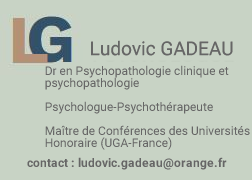Efficacité de la psychanalyse des troubles anxieux. méta-analyse
A meta-analytic review of psychodynamic therapies for anxiety disorders
Par John R.Keefe (a), Kevin S.McCarthy (a,b), UlrikeDinger (c,d), Sigal Zilcha-Mano (d), Jacques P.Barber (d)
(a)University of Pennsylvania, USA
(b) Chestnut Hill College, US
(c) University of Heidelberg, Germany
(d) Adelphi University, USA
Pour citer cet article :
John R.Keefe, Kevin S.McCarthy, UlrikeDinger, Sigal Zilcha-Mano, Jacques P.Barber (2014). A meta-analytic review of psychodynamic therapies for anxiety disorders Clinical Psychology Review, Volume 34, Issue 4, June 2014, Pages 309-323. https://doi.org/10.1016/j.cpr.2014.03.004
Highlights :
Anxiety disorders are mental-health burdens that are sometimes difficult to treat.
Psychodynamic therapy is commonly used to treat anxiety.
Psychodynamic therapies may not differ overall in efficacy from other treatments.
For most disorders investigated, efficacy may continue over a year post-treatment.
Research should identify who may uniquely benefit from psychodynamic therapy.
Abstract :
Recent randomized controlled trials (RCTs) suggest that psychodynamic therapy (PDT) may be useful in the treatment of anxiety disorders. This paper presents the most comprehensive meta-analysis to date examining the controlled effects of PDT for anxiety disorders. 14 RCTs totaling 1073 patients were included. PDT was found to be significantly more effective than control conditions (g = 0.64). PDT did not differ significantly from alternative treatments at post-treatment (g = 0.02), follow-up (FU) up to a year (g = − 0.11), and FU past a year (g = − 0.26). Medium-to-high levels of heterogeneity were detected, indicating significant differences between studies. Nevertheless, our findings remained unchanged when heterogeneity outliers were removed (termination g = − 0.06/short FU g = − 0.01/long FU g = − 0.10). Power analyses indicated that large or medium effect size differences between PDT and other active treatments could be detected even with high heterogeneity. Exploratory moderator analyses found few significant predictors of effect (e.g., relative risk of dropout). No differences were found examining remission rates or relative risk of dropout. Overall, PDT was shown to be as efficacious as other active treatments that have been studied for anxiety disorders.
Keywords : Psychodynamic therapy, Anxiety disorders, Meta-analysis, Psychotherapy outcome
